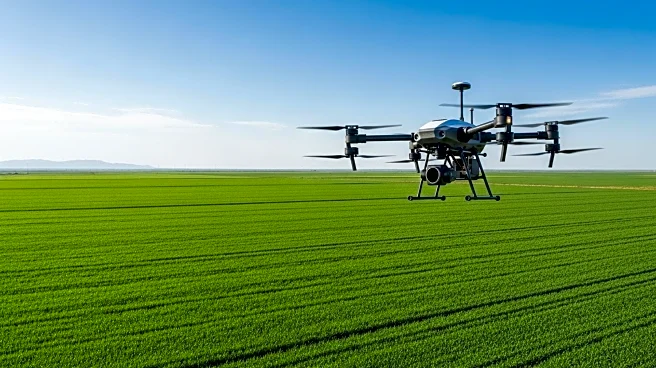What's Happening?
In Xinjiang, China, smart agriculture practices are transforming traditional farming. Utilizing IoT devices, drones, and smart fertigation systems, farmers manage large cotton fields with minimal manpower. These technologies enhance efficiency and yield, allowing farmers to pursue other opportunities. The mechanization rate for cotton farming in Xinjiang has exceeded 97%, showcasing significant technological integration.
Why It's Important?
The adoption of smart agriculture in Xinjiang highlights the potential for technology to revolutionize farming, improving efficiency and livelihoods. This model could serve as a blueprint for other regions, promoting sustainable agricultural practices and economic development. The integration of technology in agriculture is crucial for addressing global food security and resource management challenges.
Beyond the Headlines
The shift towards smart agriculture in Xinjiang reflects broader trends in technological innovation and its impact on traditional industries. As technology continues to advance, it may lead to significant changes in labor dynamics, economic structures, and environmental sustainability in agriculture.








